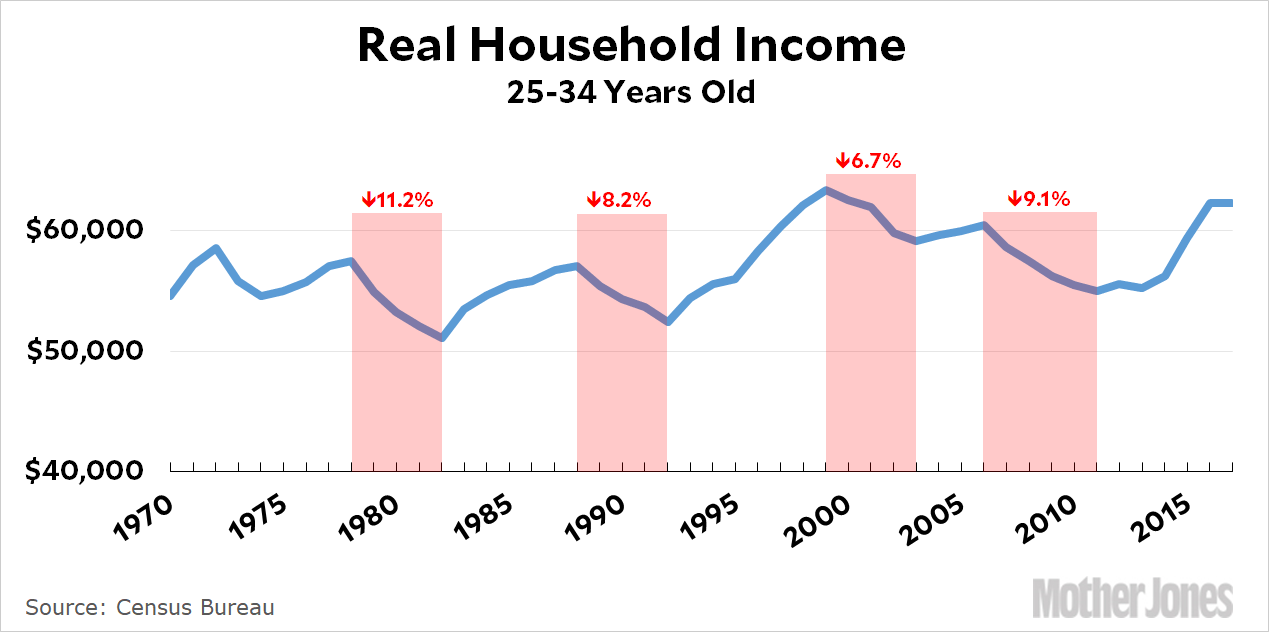Over at the Atlantic, Annie Lowrey says that Millennials are screwed if we head into another recession:
For adults between the ages of 22 and 38, after all, the last recession never really ended….The Millennials graduated into the worst jobs market in 80 years….As of 2014, Millennial men were earning no more than Gen X men were when they were the same age, and 10 percent less than Baby Boomers—despite the economy being far bigger and the country far richer. Millennial women were earning less than Gen X women.
Kids of the 1980s and 1990s have had a new, huge, financially catastrophic demand on their meager post-recession earnings, too: a trillion dollars of educational debt….The toxic combination of lower earnings and higher student-loan balances—combined with tight credit in the recovery years—has led to Millennials getting shut out of the housing market, and thus losing a seminal way to build wealth. The generation’s homeownership rate is a full 8 percentage points lower than that of the Gen Xers or the Baby Boomers when they were the same age.
As of 2014? Let’s at least look at the figures through 2017:

This is why it’s so important not to cherry-pick years when you do income comparisons. If you choose 1999 to represent Gen Xers and 2014 to represent Millennials, you’re comparing the peak of an economic boom to the trough of a recession. A longer look provides a better idea of what really happened: the income of young families did indeed plummet during the Great Recession, declining by 9.1 percent from peak to trough. This is about the same as the 1990 recession and not as bad as the 1980 recession. Since then, their household earnings have rebounded and in 2018 almost certainly went even higher than the peak year of the dotcom boom.
Homeownership rates are also not quite as bad as all that. The housing bust unquestionably hurt Millennial homeownership, but it’s roughly four points lower than its pre-recession average, not eight.
Student debt among Millennials is much higher than it was among Boomers and Gen Xers. The average annual loan payment is around $3,000 compared to half that for Gen Xers and close to zero for Boomers. In other words, Millennials who went to college have student loan expenses about $1,500 higher than Gen Xers and $2,500 higher than Boomers. On the bright side, as of 2017 Millennials earn about $4,000 more than young Boomers and pay less in taxes.
FWIW, the generation that really made out was Gen X, not Boomers. They had high incomes, high homeownership rates, low student debt, and were relatively lightly affected by recessions.
Millennials have certainly drawn a bad hand in some ways. At the same time, I don’t think there’s any need to exaggerate just how bad it is. Middle-class incomes in America have grown sluggishly for decades, and that’s hurt everyone not in the top 10 percent. But has it hurt Millennials more than any other generation? That’s a lot less clear.

















